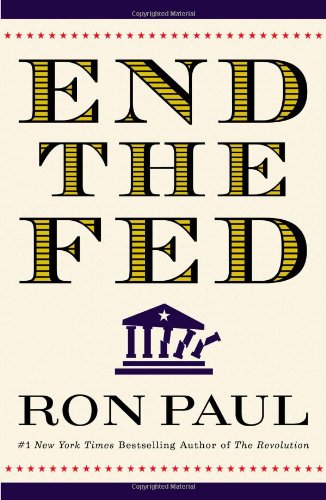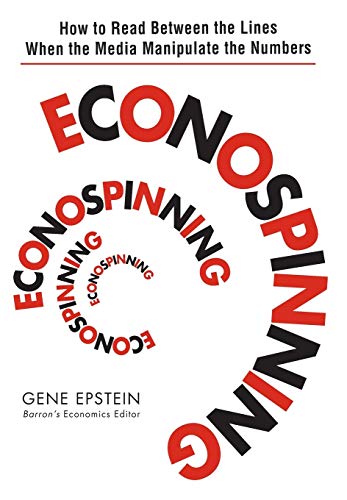Previously by Gene Epstein: A Tale of Two Meltdowns
 End the Fed
Best Price: $1.12
Buy New $8.53
(as of 10:10 UTC - Details)
End the Fed
Best Price: $1.12
Buy New $8.53
(as of 10:10 UTC - Details)
"Congress is currently considering an emergency stimulus measure, tentatively called the Bubble Act," ran the mock-news story in the satirical weekly The Onion, "which would order the Federal Reserve to begin encouraging massive private investment in some fantastical financial scheme in order to get the nation’s false economy back on track."
 Econospinning: How to ...
Best Price: $2.60
Buy New $15.38
(as of 05:25 UTC - Details)
Econospinning: How to ...
Best Price: $2.60
Buy New $15.38
(as of 05:25 UTC - Details)
While the Fed generally needs no such encouraging, the story had the ring of non-literal truth. Economists of the Austrian school have been telling us for many years that the source of boom-and-bust is the artificial expansion of money and credit brought on by the Federal Reserve.
And just to anticipate the usual objection: Boom-and-bust cycles certainly were a common occurrence before the advent of the Fed. But before the advent of the Fed, the artificial expansion of money and credit was also a common occurrence. The central bank was merely a way to institutionalize the process, while not incidentally giving economists another seat at the tables of power.
That last point is crucial. Why is mainstream economics so unclear on the causes of business cycles? Perhaps because mainstream economists have been seduced by explanations that would elevate their power – usually variations on the bogus theory originally advanced by John Maynard Keynes. That business cycles can actually be caused by an institution whose abolition would diminish the power of economists is not an insight that economists are eager to grasp.
June 18, 2009





